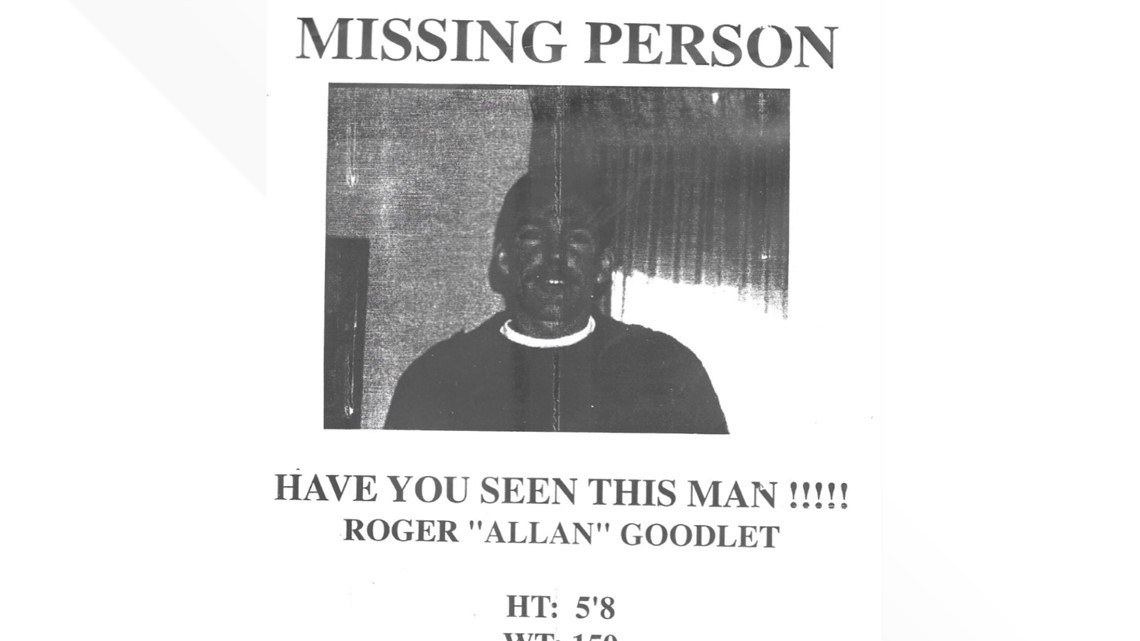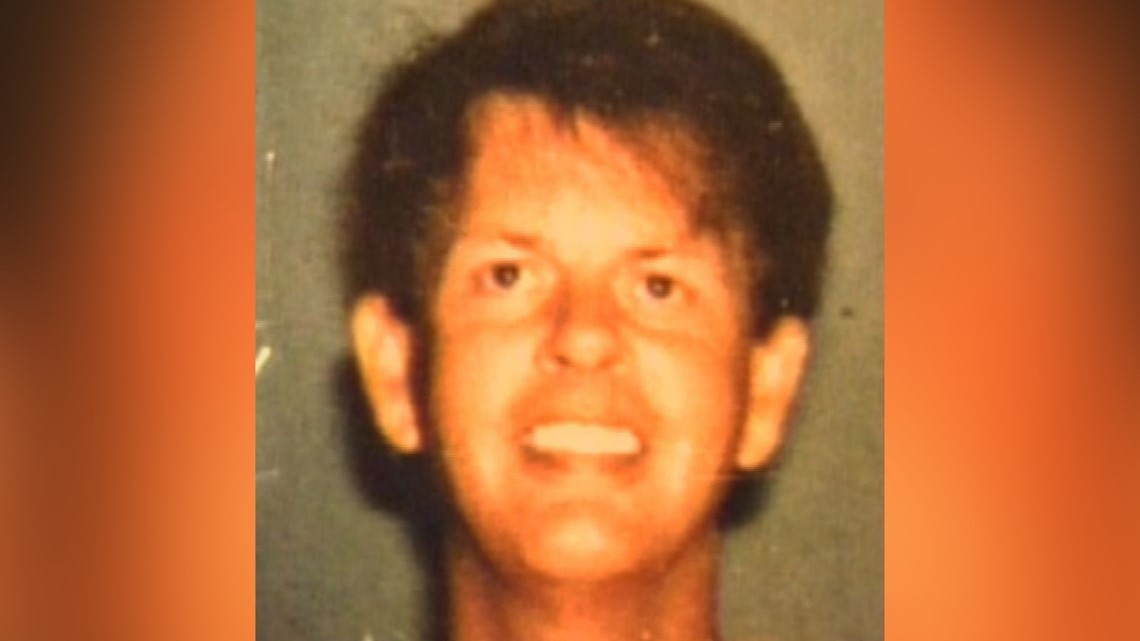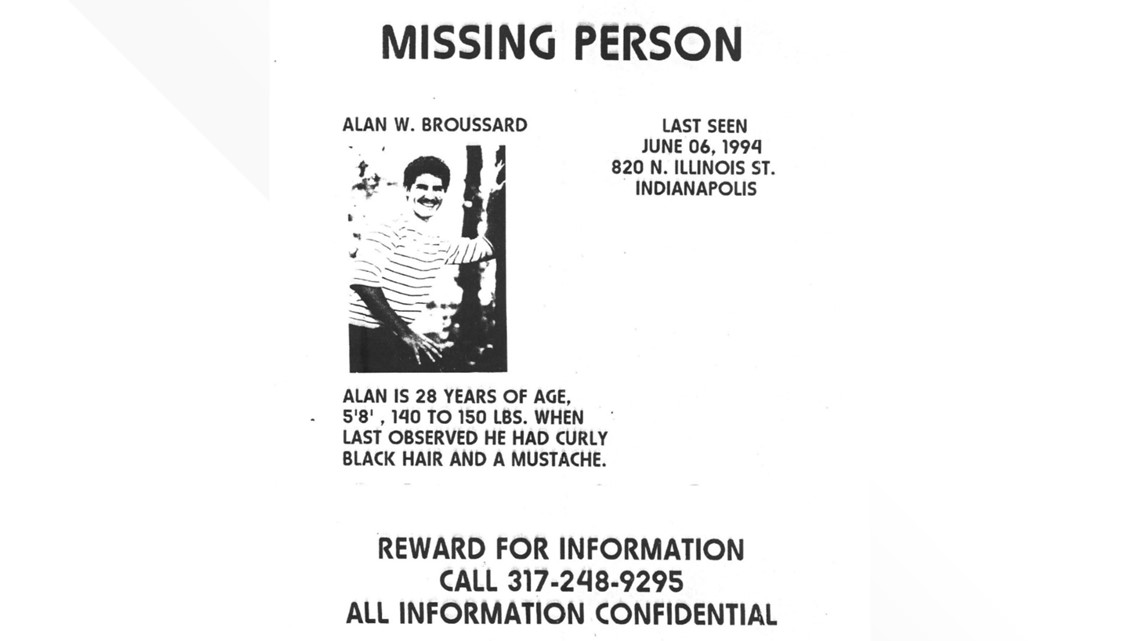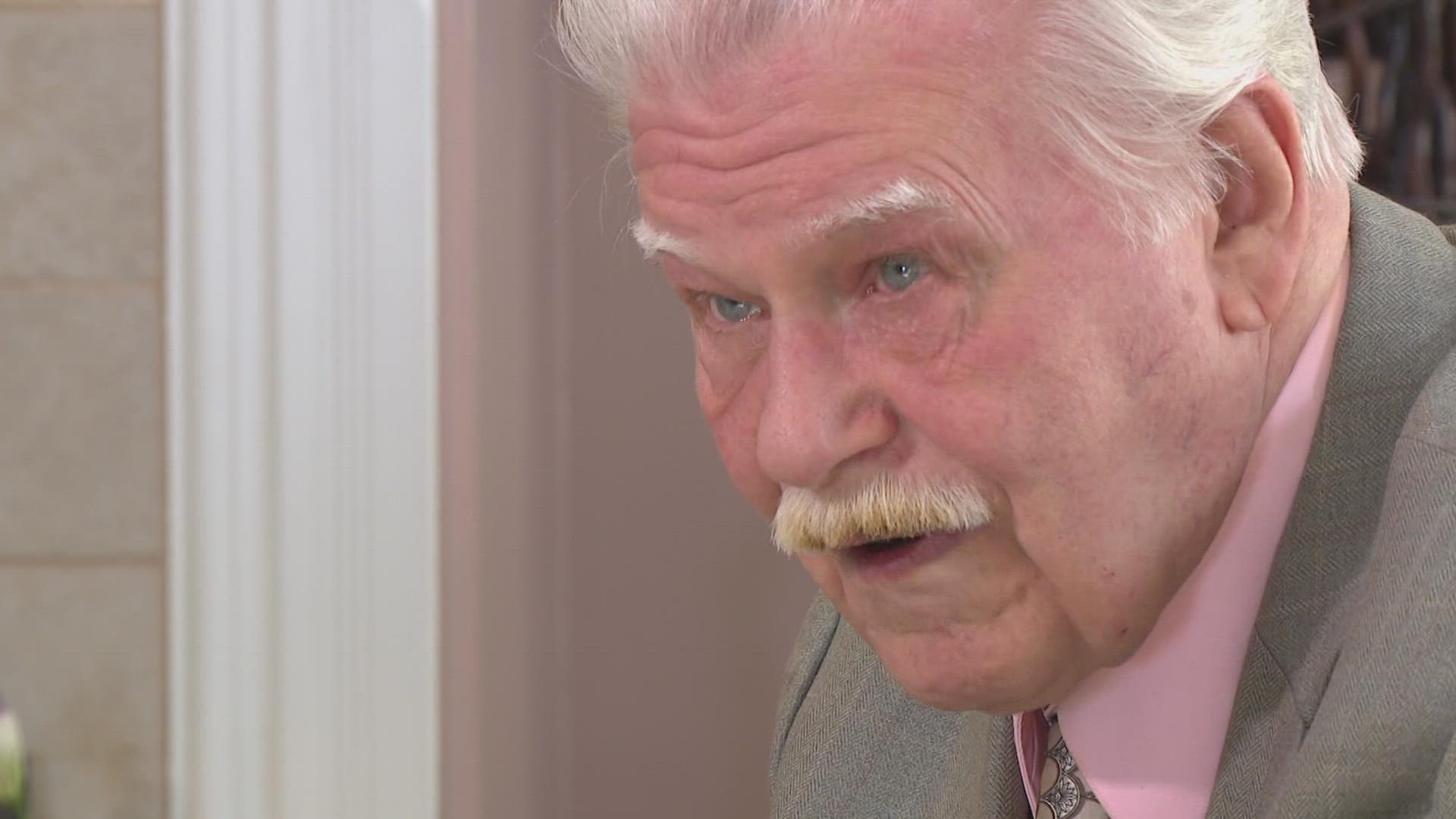WESTFIELD, Ind. — The renewed investigation into a serial killer in central Indiana and the search to identify people's remains goes back to a case that's captured attention for decades.
It was sparked from the start by Virgil Vandagriff.
Vandagriff was a retired Marion County sheriff's detective who opened his own private investigation firm.
He worked a lot of high-profile crimes during his career, but in the mid-1990s, two phone calls led to something big: the Herb Baumeister case.
"Because for you, it went from a simple missing persons case to a serial killer," we asked him.
"Correct. It became obvious there was a serial killer. Just had to figure out who, where, and how to bring it to an end," Vandagriff replied.
He got calls from two separate families about missing men: Alan Broussard and Roger "Allan" Goodlet.


Both were gay, similar physically in height, weight and appearance. Both had disappeared from local bars.
"I knew it was important to get the missing flyers out, number one, and to establish communications with people in the gay community," Vandagriff said. "And it didn't take long to find out that there were a lot of missing people. It was shocking to me the number of gay people that were missing that no one would pay attention to."
Vandagriff paid attention.
He discovered quickly there were close to a dozen missing gay men. But the private investigator said he hit roadblocks with police, who were reluctant to investigate.


So Vandagriff developed a profile of the killer.
"Yeah I said he'd be a white male in his late 30s, early 40s, married with a family," he said. "Looking back now, I was very close."
And soon, he said an informant confirmed everything.
"He called me. He said, 'I got a story I think you wanna hear.' I said, 'OK, tell me what it is," Vandagriff recalled.
He said the informant was Herb Baumeister's sole survivor.
The man described meeting Baumeister at a bar, being taken to a mansion with a pool and during a sexual encounter, getting strangled with a swimming pool hose.
"He faked passing out and when he faked passing out, Baumeister thought he was dead and of course then he opened up his eyes and he wasn't dead," Vandagriff said. "The informant survived the evening. Baumeister took him back to Indianapolis. The informant stayed in the investigation all the way through until the end."
That informant, who Vandagriff said was key to cracking the case, didn't know Baumeister's real name yet, but when he saw him at a bar again, he got bold.
"Baumeister came in and he saw him and he, meaning the informant, he got up on one of the tables at the bar and yelled out, 'This guy's a serial killer! Somebody get his license plate number!' So they did," Vandagriff said. "They followed him out to his car and got his license plate number and, of course, that traced back to Herb Baumeister."
Vandagriff's team also did surveillance throughout his investigation and he got aerial pictures from the Hamilton County Assessor's Office of possible properties where the informant was taken. Eventually, his search to find a killer unearthed the monster at Fox Hollow Farm, along with thousands of bone fragments, including the two victims he was hired to find.


All these years later, Vandagriff said he's glad the Hamilton County coroner-elect is renewing the investigation, seeking to identify more remains.
Vandagriff believes Baumeister had more than 25 victims, whose families deserve healing.
"All those people that for all these years have wondered if their relative was one of them, I'm very happy to see they're (coroner's office) doing what they're doing," he said. "I was a victim, too. My stepdaughter was murdered in 2016, so I know what it's like to have a relative murdered."
Vandagriff said his only regret in the case back then was not being able to talk to Herb Baumeister himself, before Baumeister took his own life in Canada.

